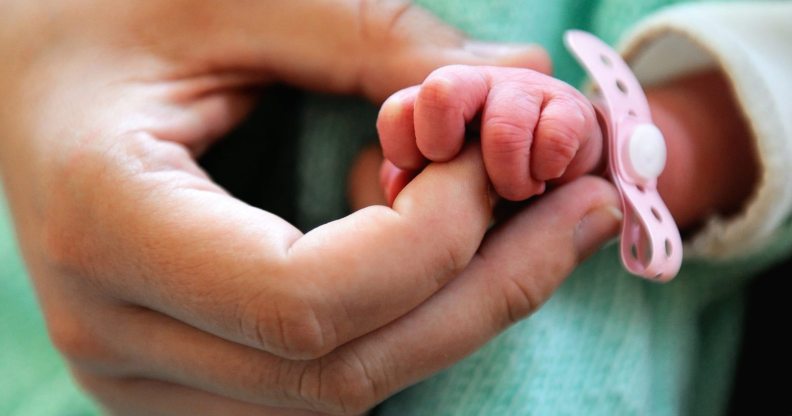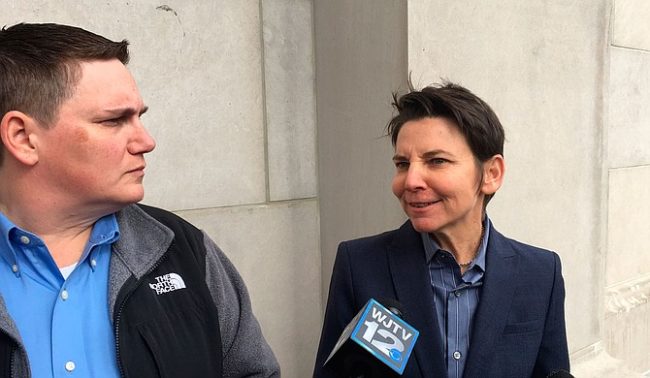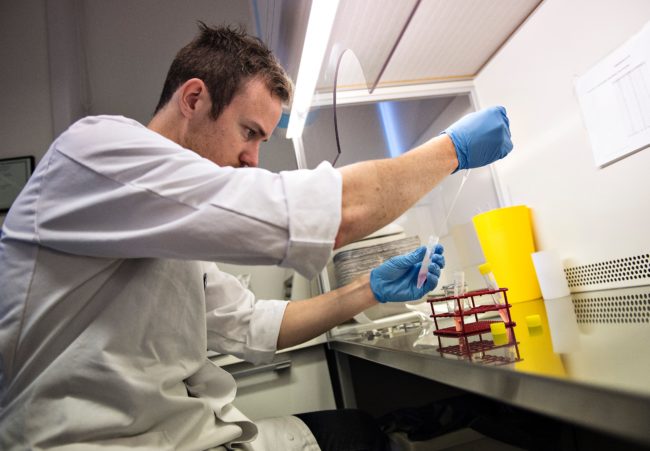The same-sex parents at risk of losing their children

Intersex children are often operated on (PHILIPPE HUGUEN/AFP/Getty Images)
Two Mississippi women are stuck in a battle to be recognised as their child’s parents after a legal loophole has allowed the state to discriminate against them.
This loophole may set a prescident that could harm hundreds of other same-sex parents.
According to the Jackson Free Press, Kimberly and Christina have two sons, one son who was adopted in 2007 and their second child, called Z in the court documents, who was born in 2010.
As the couple were unable to get married in Mississippi in 2009, the couple travelled to Massachusetts for their wedding.
In 2016 the couple seperated, causing significant issues as Christina was not named a legal parent of Z, as Kimberly was named as Z’s only legal parent.
Christina’s attorney, Elizabeth Littrell, blames this on discrimination against same-sex couples in Mississippi at the time of Z’s conception and birth.
Related: ‘Sperm donors’ are trying to trick lesbians in to having sex with men
Z was one of thousands of children born to same-sex parents using reproductive technologies such as sperm and egg donation in the US over the last decade.

Christina Strickland (L) and her lawyer Elizabeth Littrell (R ) (Photo:Jackson Free Press)
As Z was born with the sperm of an anonymous donor, Christina and Kimberly have been placed into a legal loophole that has put Christina’s right to be a parent in jeopardy.
During the separation, Christina was only given the right to visit Z, instead of being given shared or partial custody.
In Christina and Kimberly’s divorce hearing in October 2016, Judge John Grant gave the divorce, but set a worrying precident about the role of non-biologically related same-sex parents, saying that the donor of the biological material (ie: the sperm or egg) has more parental rights than the same-sex parent.
Judge Grant said: “Z has got a natural father somewhere. Our Supreme Court has been very, very strict about parental rights and absent fathers. And there is a natural father somewhere of Z, whose parental rights have not been terminated.”
“The court does not find its opinion to be a discriminatory statement but a biological fact.
“The court reasons it is impossible for two women to conceive a child and that conception must occur between a man and a woman.”
Judge Grant concluded that although Z was born whilst Christina and Kimberly were married, Z was not a product of the marriage and refused to acknowledge Christina as another parent.

After this ruling, Christina went to the Mississippi Supreme Court to appeal and be listed as Z’s legal parent.
In this appeal, held last month, Chief Justice Bill Waller of the Mississippi Supreme Court
Christina’s attorney Elizabel Litterell said in the hearing: “The state was discriminating against her and this family at the time by laws that have since been struck down should not justify continued discrimination”

“We are talking about children who are born to married couples. Do they have the right to two parents, or are we going to treat them as illegitimate?”
Litterell highlighted that this case may set a dangerous precident for the thousands of children born using reproductive technologies such as IVF and sperm donation in the state, many of whom are born to same-sex couples.

The inside of a sperm bank (Photo: HENNING BAGGER/AFP/Getty Images)
She said: “We are talking about children who are born to married couples. Do they have the right to two parents, or are we going to treat them as illegitimate?”
In the hearing, Kimberly’s attorney argued that the former couple would have to contact the provider of the donor sperm and ask him to formally give up his rights as Z’s biological father.
However, as part of the agreement to use the sperm donor services, Kimberly had to sign a contract that specifically banned contact or attempted contact with the sperm donor.
There have been cases where donors have retroactively requested their parental rights, but typically courts have ruled in the favour of the same-sex parents.
The case is ongoing and presents many questions about parental rights, as the results of this case may have huge implications for same-sex parents across the country.

